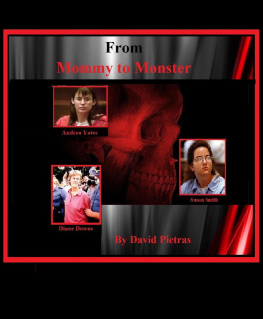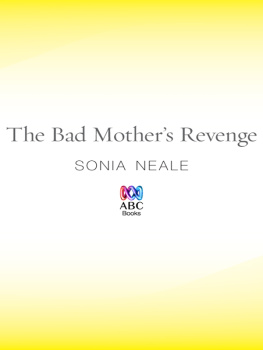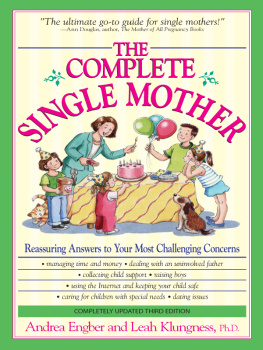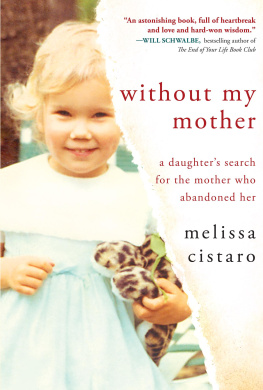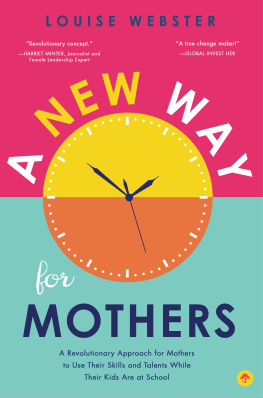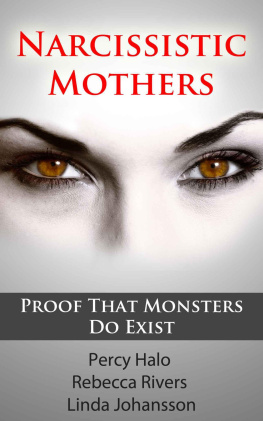ADVICE FOR A HAPPY LIFE
ADVICE FOR A HAPPY LIFE
Lessons from My Mother
Anne Friedman Glauber

Changing Lives Press
50 Public Square #1600
Cleveland, OH 44113
www.changinglivespress.com
Library of Congress Cataloging-in-Publication Data is available through the Library of Congress.
ISBN: 978-0-9849400-7-3
Copyright 2014 by Anne Friedman Glauber
All rights reserved. No portion of this book may be reproduced mechanically, electronically, or by any other means, including photocopying, without written permission of the publisher. It is illegal to copy this book, post it to a Website, or distribute it by any other means without permission from the publisher.
Editor: Lisa Espinoza
Interior design: Gary A. Rosenberg www.thebookcouple.com
Cover design: Saunak Shah www.saunakshah.com
Printed in the United States of America
10 9 8 7 6 5 4 3 2 1
Contents
Preface
BEFORE I RELIED ON GOOGLE TO FIND INFORMATION and guidance, my mother sent me clippings. She regularly cut out newspaper, magazine, and newsletter articles, and quotes that punctuated her point of view. When I first got married, at least once a month she would mail two or three clips together in an envelope to me. When I would tear open the envelope, those carefully cut clippings would drop out onto my lap, bits and pieces of advice and wisdom I would then scoop up, put in a desk drawer, and mostly ignore.
A month after my mother died, I went through the desk drawers in her bedroom and found a small stack of envelopes stuffed neatly with her clippings, each one cut perfectly and precisely around the edges, echoing her order and organization by their very form. This time I gathered the clippings close to me. Some were cut from the local papers; some were from the New York Times or Wall Street Journal. Some were phrases from poetry and short stories; others were from daily advice columns. There were quotes from well-known philosophers, from people who lived in our small Pennsylvania town, from Dear Abby, from her father, from Jewish thinkers and Catholic nuns, and even some Buddhist and Hindu scholars thrown into the mix.
Now, when I read the clippings all together, all in one place, I see my mothers positive spirit and her vibrant approach to life laid out in the pieces of paper before me. It is as if I could hear her voice repeating one of her favorite quotes to me, The moment is everything. Life is good.
My mother was a success at living. She routinely radiated a sense of purpose and well-being. She always seemed happyhappy in her marriage to my father, happy as a mother, happy in the small town community of northeast Pennsylvania where she lived her whole life. I adored my mother, but I typically challenged her perpetually upbeat personality. I doubted that her happiness could be so real.
My mother never seemed to struggle to find the answers to the many questions I have relentlessly asked myself: How can I make the most out of my life? How can I be less critical of myself and others? How can I find the core of contentment? For my mother, those answers appeared to be right in front of her.
And now that my mother is gone, I yearn to understand those answers, too. I miss her positive energy and easy happiness. So, I decided to write about my mothers approach to life. I thought that by describing it, I could keep my mothers spirit alive around me and share that spirit with my children, Lili and David, and with my nieces, my brothers children, Diane and Haley.
And perhaps in the process of writing, I would have a new insight into my mothers distinctive guide to happiness. Because rereading the clippings she cut and kept, some yellow and fragile with age, it is clear to me that these pieces of paper were not just random quotes she liked and saved, they actually framed and contained her approach to living.
Introduction
MY MOTHER LIVED A TYPICAL LIFE IN THE MOST extraordinary way. Happiness revolved around my mother, kept in orbit by her positive energy field.
My mother had a rare sunny character. She felt so comfortable with herself and so at home with who she was that she exuded the feeling that she was always right where she should be. She had the ability to combine a realistic view of life with a continually optimistic outlook that was broadened by her laughter.
When I was a teenager, I would doubt the authenticity of my mothers happiness, and I would rebel against it. I would continually question the value of contentment and look for the creative inspiration found in disappointment and despair. I was interested in the contours of emptiness to counter my mothers fullness.
Still, despite my soul searching, I could not deny the power of my mothers positive personality.
When my mother walked into a room, people moved toward her. It was not just that she looked beautifula petite blond with a huge smile and bright blue eyesbut she also radiated a fierce happiness. I saw that people wanted to brush up against that joy and have a chance to touch it, too.
Her positive enthusiasm for even the mundane details of life was surprisingly contagious. Rarely did she become depressed or sadnot even later in life when doctors told her that her chronic leukemia had spread and transformed into something acute.
My mother has been gone for five years now. Her positive energy force is no longer around me. It is only now that I realize that one of the reasons I was able to hold fast to a negative view of the world was that my mothers positive energy field held me up. Now my embrace of the negative is fragile and insecure. Missing my mother moves me to reconsider what I have always dismissively rejected: Is it possible to learn to be positive and happy?
I never thought so. I always believed that people have either the gene for the half empty or the gene for the half full and thats that. And it is practically impossible, extremely difficult and usually a waste of time to do anything about your biological point of view. Youre either positive or you are not.
And despite the growth of positive psychology as an academic discipline, which I admit to having researched and even enjoyed reading, its practices seem forced and artificial to me. Indeed, there is not one popular positive self-help book on my bookshelf.
But then my mother died. And now I am much more willing to see what I can learn about the way to live a happy positive life.
To live in the hearts of those you left behind is not to die.
My Mother
MY MOTHER, PAULINE PAULY POPLIN FRIEDMAN, lived her entire life in Northeastern Pennsylvania. She was born in Scranton on April 2, 1930, the third daughter of Harry and Lillian Poplin, recent Jewish immigrants from the Ukraine who had met in Scranton. My mothers father, Harry, was outgoing and gregarious, and learned English easilyas well as Italian, because most of his customers were Italian women. Harry had his own traveling sales business, which he ran out of his car, selling every possible item that an Italian housewife in a small Pennsylvania town might need, from curtains and pots and pans to girdles and wedding dresses. My mother was very close to her father, and she was shocked to find, when she was 10 years old, a letter that had arrived not long after she was born from one of Harrys friends, saying, Tough luck, Harry!
My mothers mother, Lillian, was shyer than her husband, Harry, and it took a while for her to learn English and acclimate to a new life in the United States. She spent most of her time at home, raising her children. If my mother had difficulties with her mother, who had trouble with reading and writing in English, I never knew.
Next page

